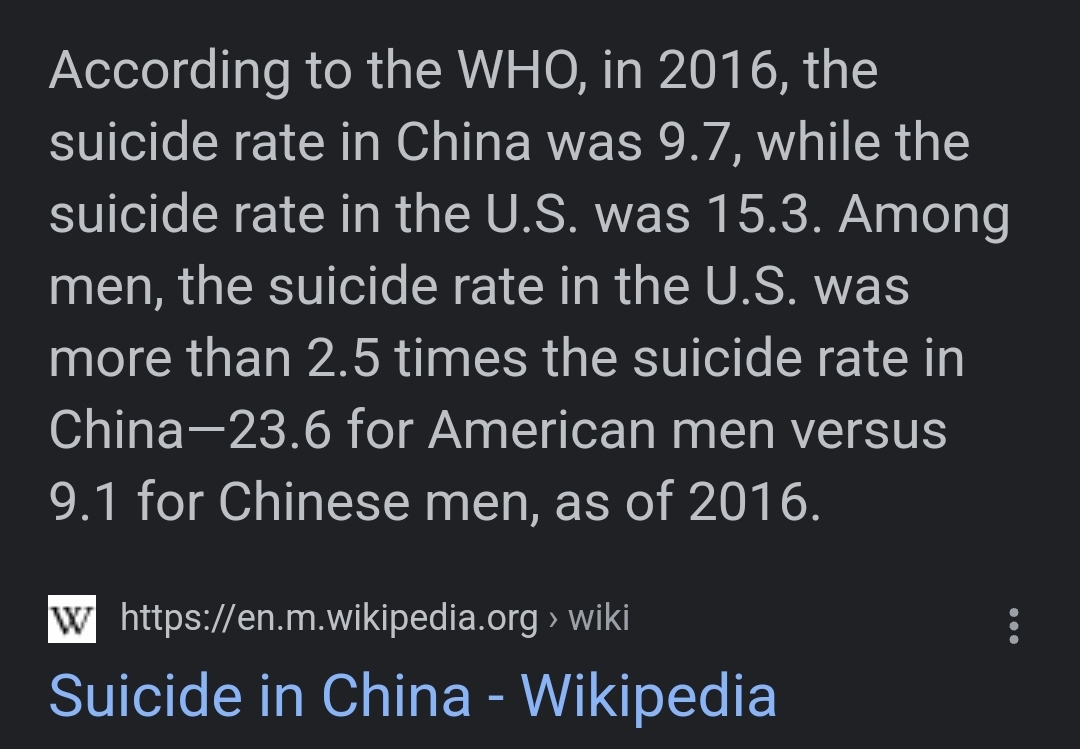Full disclosure: I’m training to be a psychologist (not psychiatrist)
I’ve been browsing here a lot since Genzedong got quarantined, as I had been expecting a full removal soon after. The general community here is so positive and funny, I found myself preferring it to the subreddit.
I decided to break from my lurking ways to comment on an unfortunate trend I’ve noticed: A few, maybe just one or two, users trying to bring legitimacy to anti-psychiatry rhetoric. These users are getting a great deal of attention for their posts, and they seem to me to be legit comrades, regularly posting in other subs as well. I think these users are genuine, and I don’t intend to make this about them, nor am I about to speculate about their personal reasons for perpetuating these messages. I will say only this about them: There is a worrying tendency to fully dismiss the experiences and views of mental health professionals, saying that speaking to us is “like speaking to a wall,” and encouraging other users to simply ignore our responses. I think I only need to describe this sort of behavior for the troublesome qualities of it to become self-evident. No more needs to be said on it.
Now, I want to speak first to the kernel of truth in the anti-psychiatry lie, because this is somewhat personal to me.
Following the death of my 24 year old brother in 2020, I had a very hard time maintaining my professional life for a little over a year. He was not only my closest friend, but also the only person with whom I could share my political thoughts openly, expecting that he might be feeling similar. Simply put, he was the only socialist I knew.
At my field placement at the time, I was often working with people who were hospitalized. The fact that capitalism contributes to mental illness was not a new concept to me, but seeing how many of our patients were homeless, and knowing that, sometimes, they were sent back to the streets after we had gotten them “back to baseline,” was devastating for me. It was the sort of disruption that makes a person question the field they are in.
Cut-to October, 2021, I’m the only student in a classroom, explaining to 6 professors why my performance is slipping lately, and I find myself explaining that I feel impotent as a therapist, eventually yelling something rash to the effect of “If we actually wanted a psychologically-minded approach to helping these people, we’d be giving them houses!” Further, I was boiling in anger so slowly I almost didn’t notice it, because I had no one - zero people - in this liberal-as-hell program to discuss my beliefs with. No one outside of it. Just no one. I was surrounded by people who loved to talk about “systems,” but couldn’t form a coherent thought about the economic system that undergirds all of the ills of these other systems.
It is true that therapy and psychiatry are often bandaids for people living in a sick society. It is true that many of the problems we seek to address are exacerbated or outright caused by living in a capitalist system. It is true that therapy addresses the suffering of individuals, when that suffering is often the result of communal discord.
It’s deeply unhealthy to get stuck there though. I was for a time, and my outpatient clients likely suffered lower quality treatment from me during this time. I know everyone around me suffered a lower quality me.
We are historical materialists. Because of the suffering caused by capitalism, it can be easy to lose sight of the materialist understanding of capitalism as an inevitable and necessary next step beyond feudalism, leading to socialism. Capitalism is not an entity you can diagnose as evil and then determine that everything birthed from within it is therefore also evil. That’s idealism. The fact that psychiatry and therapy inherited flaws from operating within a capitalist system says absolutely nothing about their inherent nature, the intent of them, nor their impact.
Now let’s get more specific. This entire dance of tying capitalism and psychiatry together utterly ignores basic realities - like the fact that some mental illnesses seem to be primarily organic, that is, relating to the person’s biological make-up, their “wiring.” Primary examples of this include ADHD, Bipolar and Schizophrenia. If you suppose a person with schizophrenia or bipolar would suddenly be highly functional, absent medication, in a world where we’ve reached international communism, you are simply making a massive, uneducated guess. We don’t know that, and anyone who has spent considerable time among the severely mentally ill population will tell you that it seems extremely unlikely. Further, we haven’t reached communism, so it seems reasonable to suggest we do what we can for people who are suffering currently.
A lot of anti-psychiatry rhetoric seems to come from the neurodivergent crowd, specifically people with ADHD and/or autism, who have felt mistreated by the field of psychiatry because they aren’t disordered, just different from the type of person who succeeds under capitalism. There is a lot of truth to this, and I wish I had better answers for these individuals. Perhaps under communism, people with ADHD and Autism will feel no need for therapy. Then again, perhaps they’ll still suffer from higher rates of depression than other people, simply because they find it harder to fit in socially. A lot of unhelpful speculation is required to even have that conversation. I’m more interested in helping people with the problems they say they want help with in their lives, at this point in time.
Now to get on to what most people think of when they think of psychiatry and therapy. When I’m helping someone with OCD learn to work past their compulsions effectively enough that they can finally do something enjoyable with their time, no one gives a flying fuck if capitalism has to do with why they can’t stop checking, and re-checking that everything in their home is “just right.” When I’m helping a socially anxious person find human connection, or a depressed person find something rewarding to engage in, again, the discussion of how their mental illness is a result of capitalism feels trivial in the face of their suffering. Yes, every single one of my clients deserves revolution. No, I’m not capable of bringing about that revolution on my own, but I can help my clients make friends and find meaning in the lives they do have under this capitalist system.
The last problem with anti-psychiatry being tied to Marxism is more pragmatic: People who are curious about communism come to this site. Most people’s (with very unfortunate but real exceptions) experience of psychiatry and therapy will not map onto the exploitative machine described by the anti-psychiatry folks any more than their experience of the medical field does. This means that any curious liberal who comes into this space looking for answers is going to be immediately turned off.
Anyway, I’m really thankful for this place and hope this post doesn’t make me a pariah around here in the future. Thanks for reading, comrades.
Edit: A previous version of this post contained language that was unfair to the anti-psychiatry crowd. This was a mistake pointed out to me in the comments, and I see what they mean. I’ll do better with that in the future.
There are enough text walls in the comments to build the great wall of china
never change, comrades
It’s a useful tool to keep the liberals out. You know, since they don’t read
Something interesting to consider for people on the fence or not sure what to think. I’m sure this correlates to a lot of different moving parts and I’m not sure precisely what it proves, but it’s an angle worth pointing out.

International analysis of suicide and mental health rates without material and dialectical analysis can easily lead some “scientists” down the road of race science if done through the lens of “chemical inbalance” theory. That or misguided cultural-orientalism. “Well, the confucian ideology…” etc. We have to consider, materially, why some mental health issues are epidemics in many western nations and not elsewhere. Who claims they’re epidemics, what is the prescription for dealing with them, what is the root cause, is there under or overreporting being done, etc.
This is also a great resource I would not have discovered without comrade Amicese (who I believe is a very curious comrade who has spawned a lot of very interesting discussions and who is, from my perspective, being unfairly lambasted in the comments for asking some uncomfortable questions or making some disagreeable claims) and the anti-psychiatry sub. I believe ideologically it may be eclectic, but it’s a brilliant insight into the pseudo-class war going on behind the scenes in the psychiatric field in Amerika.



